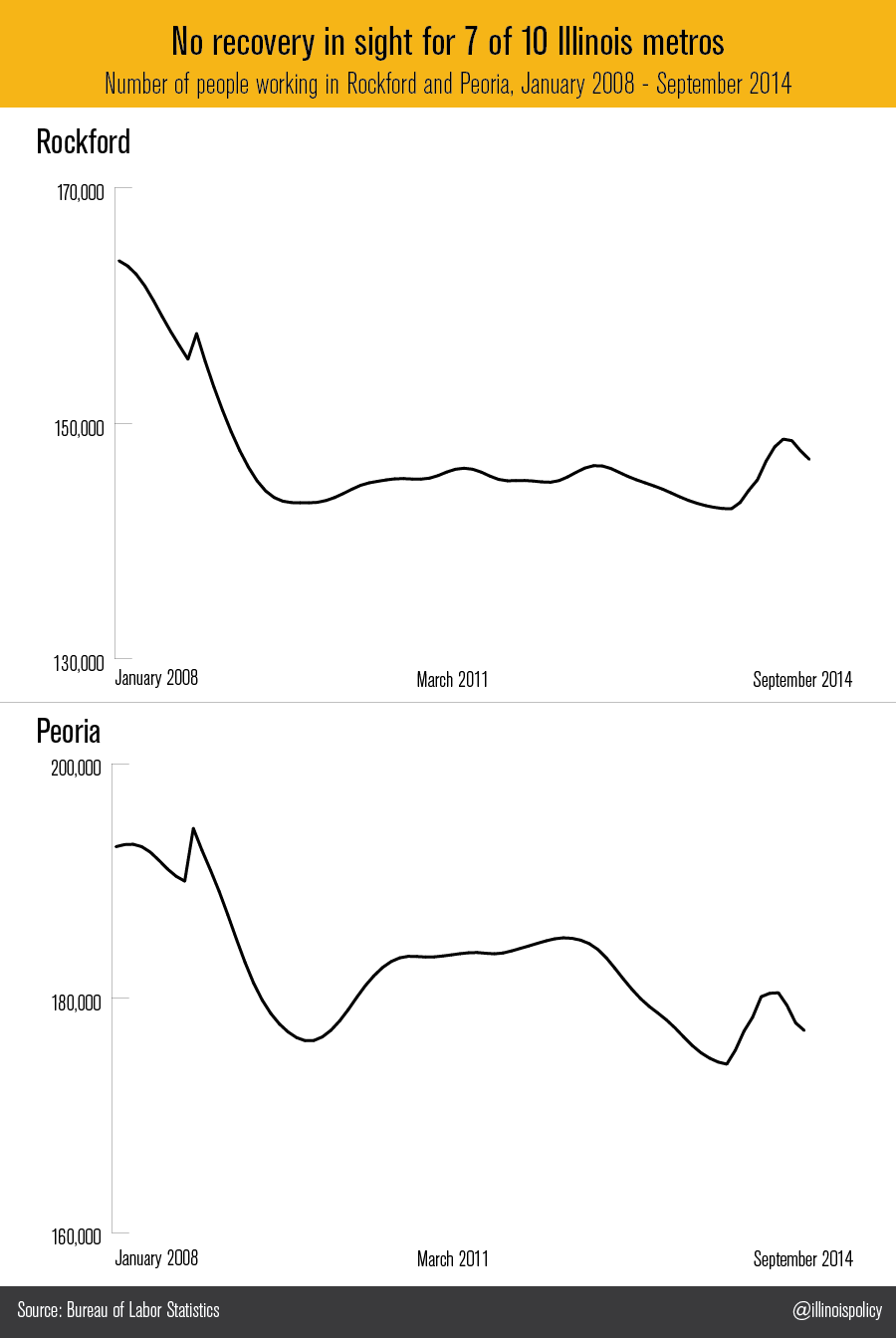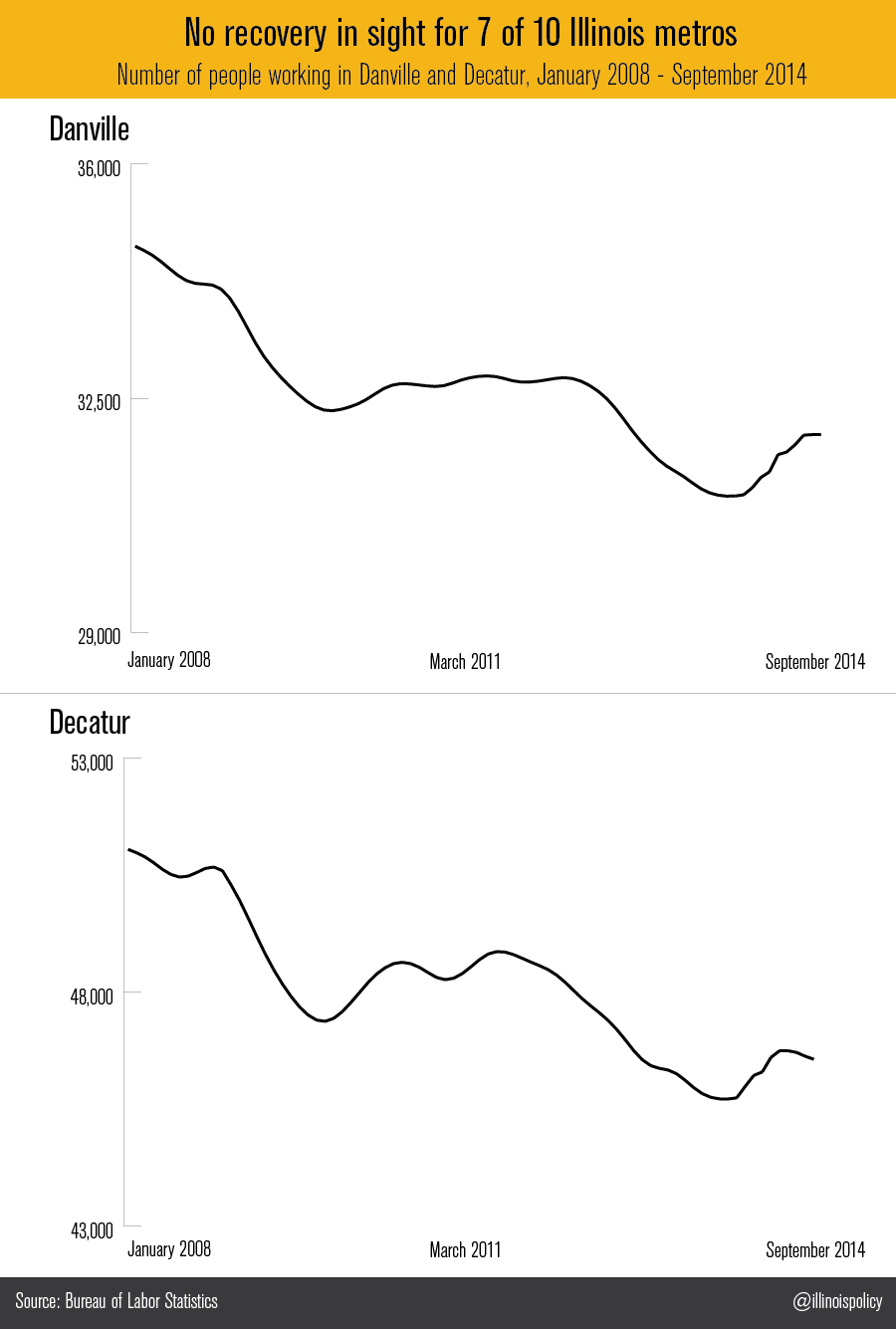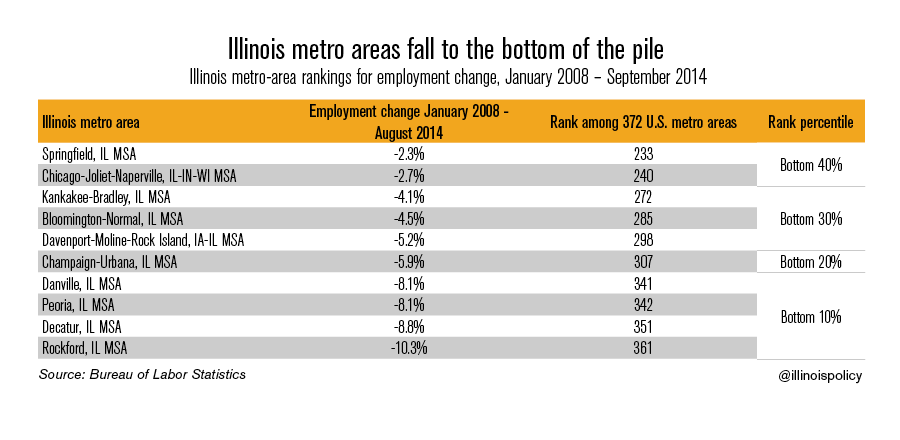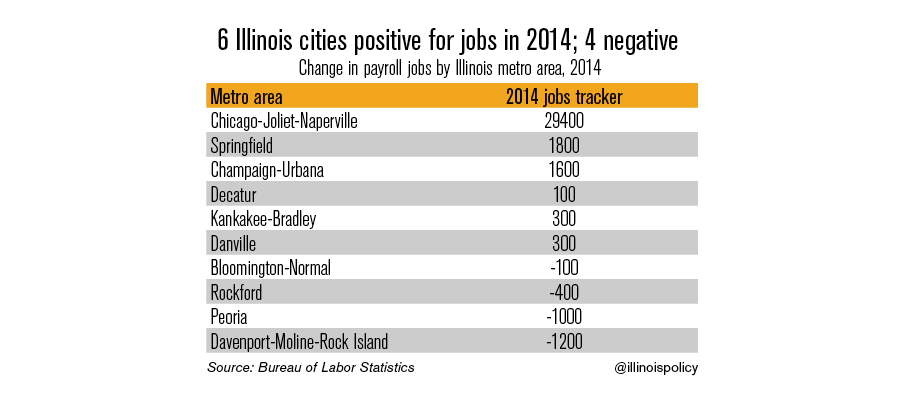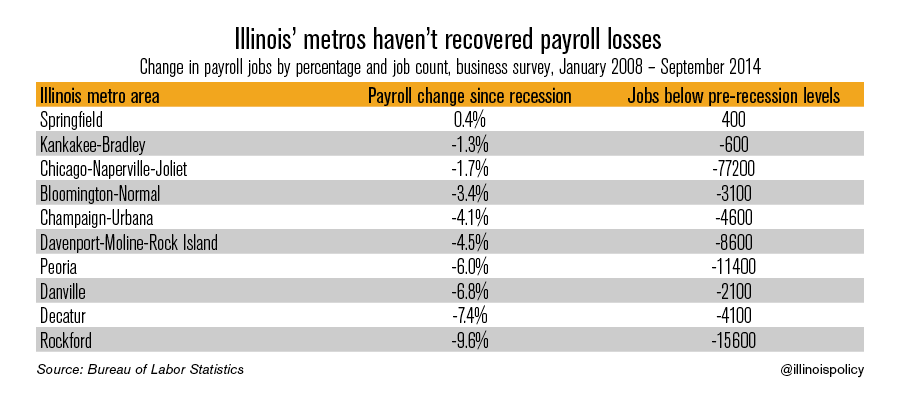7 of 10 Illinois metro areas are not recovering at all
Unemployment rates fell for most of Illinois’ metropolitan statistical areas in September, according to a press release from the Bureau of Labor Statistics. However, seven out of 10 Illinois metro areas are not showing any signs of an economic recovery when it comes to putting people back to work. Champaign, Chicago and Springfield are showing...
Unemployment rates fell for most of Illinois’ metropolitan statistical areas in September, according to a press release from the Bureau of Labor Statistics. However, seven out of 10 Illinois metro areas are not showing any signs of an economic recovery when it comes to putting people back to work.
Champaign, Chicago and Springfield are showing a trend of recovery from the Great Recession. However, the rest of the Illinois metro areas are not. That includes Bloomington, Danville, Moline-Rock Island, Decatur, Kankakee-Bradley, Peoria and Rockford.
Decatur and Rockford were hit especially hard by the Great Recession. In terms of the number of people working in those cities, the trends are still going down. The same is true overall for seven of Illinois’ 10 metro areas.
Small cities such as Danville and Decatur look even worse.
The state’s jobless rate has fallen from 8.4 percent to 6.6 percent over the past six months, and Illinois’ metro jobless rates have come down with it. The dominant factor for the decrease in Illinois’ unemployment rate over the last six months has been workers dropping out of the labor force.
When it comes to putting people back to work, Illinois metros continue to stack up poorly compared to the rest of the country’s metropolitan areas. The best-ranking Illinois metro area is Springfield, which comes in at 233st out of 372 metro areas nationwide. Peoria, Danville, Decatur and Rockford all rank in the bottom 10 percent nationally, because they are not recovering at all.
The BLS establishment survey of businesses shows that six Illinois metro areas are positive for jobs on the year, while four are negative. Peoria has had the toughest 2014, down 1,000 jobs on the year.
Compared to before the recession, most Illinois metro areas also have a long way to go to recover the payroll jobs that were lost during the recession, according to the BLS business survey. Springfield has broken even for payroll jobs, and Kankakee is close. Rockford, which is the third-largest city in the state, is the furthest from a payroll-jobs recovery.
Downstate metro areas that rely on manufacturing need relief from state policy errors. Many downstate cities are still in decline, and that won’t end until the General Assembly makes Illinois competitive again by correcting policy errors present in as workers’ compensation and forced-unionism that make manufacturers leave the state.
Illinois metro areas can work to foster entrepreneurship and business development by slashing wait times, reducing local business and occupational licensing requirements, simplifying the permitting process to make it easier to start a business and developing more flexible zoning ordinances that can accommodate new businesses.

